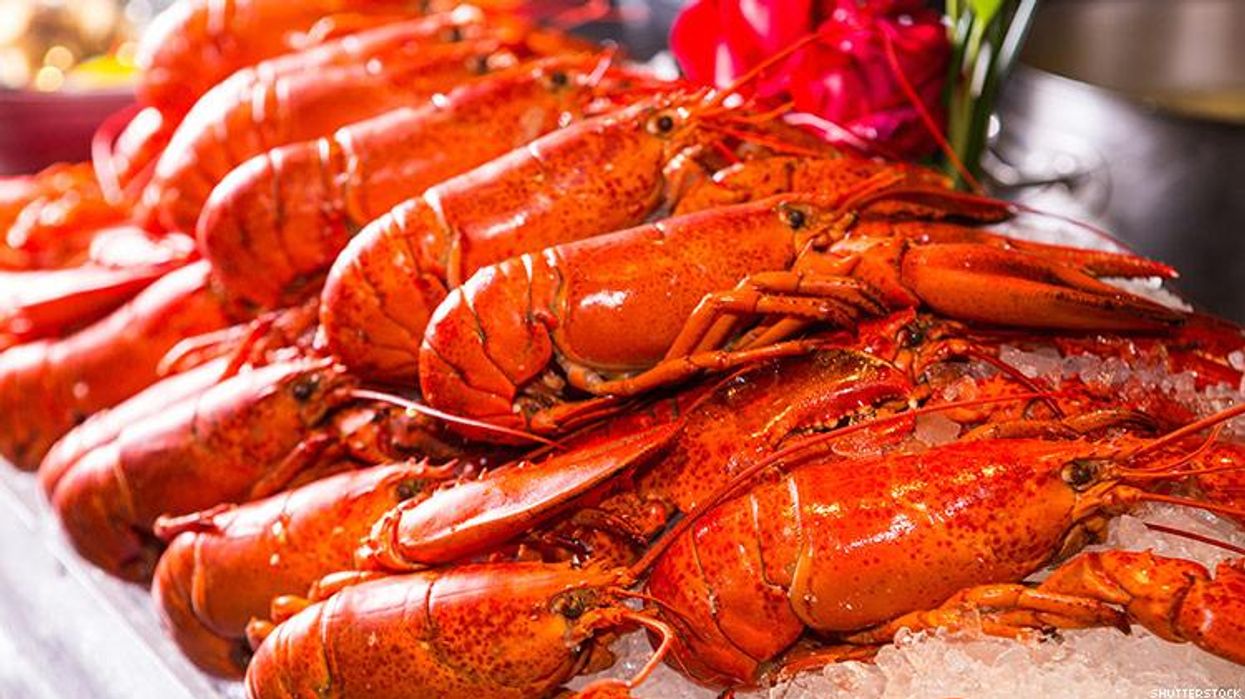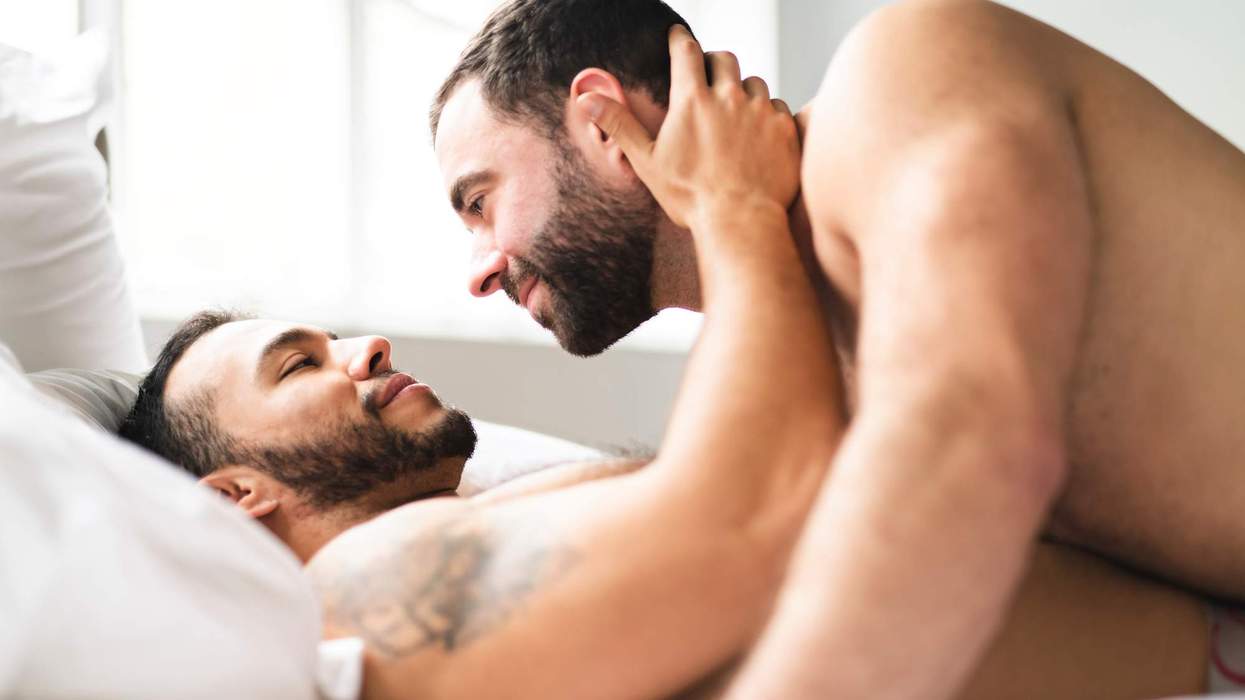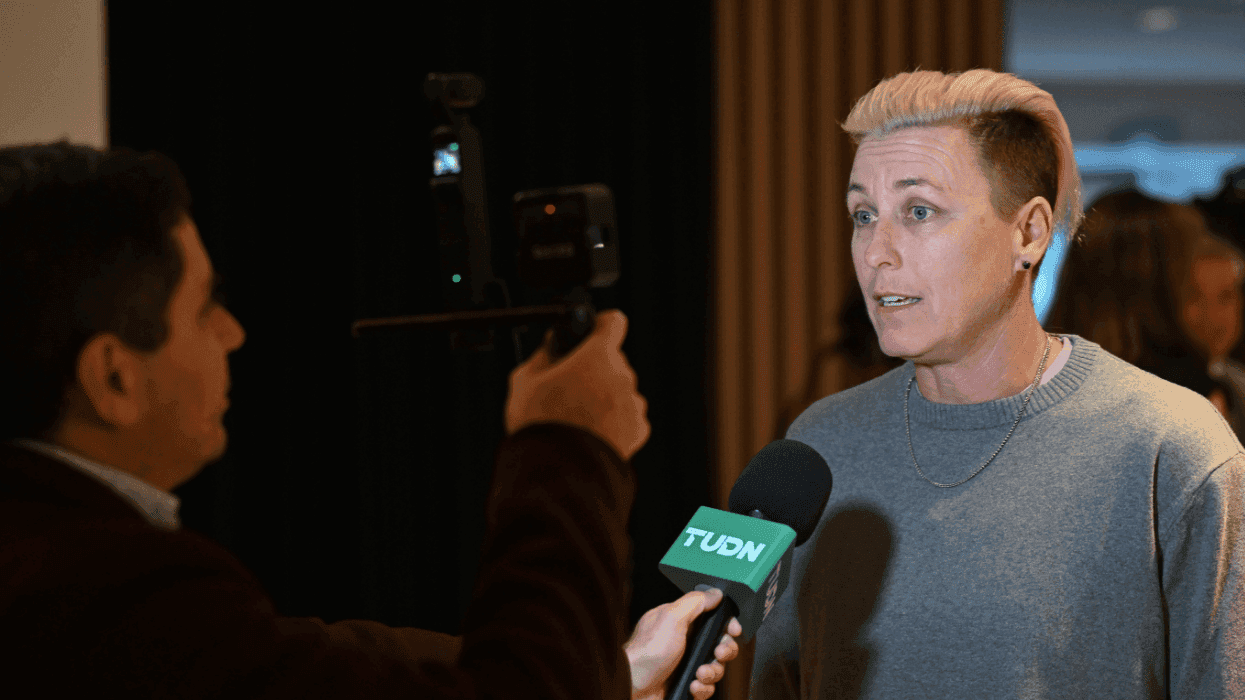Did you know that the lobster emoji is a trans icon? I had no idea, but apparently it is -- so much so, that the American Dialect Society, an organization that studies the English language as it's used in North America, nominated it for Emoji of the Year last Friday on account of its being "adopted by [the] trans community." (Mx. Lob ultimately lost the title to the skeptical thinking-face emoji, who is cis.)
I learned about all of this while sitting around a dining room table with about a dozen or so other trans people at a friend of a friend's potluck in Brooklyn. (The setting just could not have been more ideal for turning this moment of my life into content at a later date.) "Wait," said The Masker author Torrey Peters, interrupting our meal. She'd just stumbled upon the American Dialect Society's press release and proceeded to read it aloud to the table.
The lobster emoji...adopted by the trans community? I was amused but mostly just confused; I'd literally never heard of this before. Why trans people? Why the lobster? Not to gatekeep, but are lobsters even trans? I had no idea. Neither did Peters, nor did any of the other trans people gathered around the table. One person thought that maybe it was because lobsters kind of look like that tri-pronged trans symbol -- you know, the one that combines the symbols for male, female, and genderqueer into one? This seemed to make sense until we thought about it for more than four seconds and realized that lobsters do not, in fact, look like like that tri-pronged trans symbol, so that couldn't be it. Another person suggested that lobsters might have binary-blurring sexual traits, like seahorses. But if male lobsters could get pregnant just like male seahorses, wouldn't we know all know that fun fact about them like we do with male seahorses? "Is that a West Coast thing?" wondered Rio Sofia, a visual artist and organizer who lives in Brooklyn. "I bet it's a Portland thing," said someone else, at which point we all let out a petty tribalistic groan and carried on with our meal.
Later in the day, I remembered how amusing slash confusing I found the news, so I shared the American Dialect Society's press release with my coworkers here at Out over one of the Slack channels we use for work. I expected to be met with similar amusement slash confusion, but Out editor-in-chief Phillip Picardi came through with a reveal I did not expect: He was somewhere in Europe having dinner with Munroe Bergdorf, as one does, and she told him that the whole trans lobster emoji thing is very much A Thing across the lobster-filled pond. I reached out to Bergdorf directly, and she recommended that I speak with Charlie Craggs, a British activist who authored To My Trans Sisters in 2017.
Last year, Craggs launched the #clawsoutfortrans campaign to get the Unicode Consortium to add a trans flag emoji based on Monica Helms' 1999 design to their character sets. As part of her campaign, she suggested that trans people use the lobster emoji in lieu of the as-yet-nonexistent trans emoji to protest the fact that Unicode made a lobster emoji before they made a trans one -- or at least an explicitly trans one. Technically, any emoji could be trans. I've definitely clocked a few of them, but that's up to the dancing wom -- I mean, her!! Her. It's up to her, whoever she is, to decide whether she wants to disclose that to the rest of us or not. But I digress...
I was unable to reach Craggs by press time, but I did speak with Charles Carson, the Managing Editor of Duke University Press' linguistics journal, American Speech, and a member of the Unicode Consortium's emoji subcommittee.
Carson, who is responsible for nominating the lobster emoji for Emoji of the Year, told me that the creation of new emoji is far more complicated than it appears to dummies like us. (My words, not his.) Basically, Unicode only creates the coding for emoji. The companies that own our devices and social media networks (Apple, Google, Facebook, etc.) are the ones responsible for figuring out how those codes will look once they're approved for use, which is why Android emoji look different from iPhone emoji and so on. So even if Unicode coded for a trans flag emoji, these greater corporations would have to agree to render whatever they come up with.
Then, there's the issue of what that code should be. Let's say Unicode were to make a trans pride flag like they did with the Pride-pride flag, which is officially called the rainbow flag. This emoji would actually be composed of two characters, the white flag plus the code for another pre-existing emoji. (The rainbow flag = white flag + rainbow.) This step alone raises a number of issues, Carson says, from figuring out which pre-existing emoji could conceivably represent "trans" without inevitably offending huge swaths of the global population, cis and trans alike, to deciding which trans flag they should even code for in the first place. A lot of trans people don't like Monica Helms' pink, white, and blue design.
"The trans flag is an abomination," Andrea Long Chu, a writer who lives in Brooklyn, tells me. "[It] looks like the banner of a nationalist party for children six and under." There's also the issue of how rapidly the terms and symbols we use to describe ourselves change year by year. Remember trans* with the asterisk? That was only four years ago. Imagine if they made a trans emoji in 2014 that was just a big rectangle that said "TRANS*" with an asterisk. We'd all be stuck with that as our trans emoji till the end of time, Carson says, because once an emoji is coded it cannot be undone.
With all this in mind, I kind of don't mind the lobster. Not that I'll ever use it for this off-brand purpose -- I feel more seen by the empty seat emoji, personally -- but I appreciate its home-grown origins, even if that home's not quite my own.






























